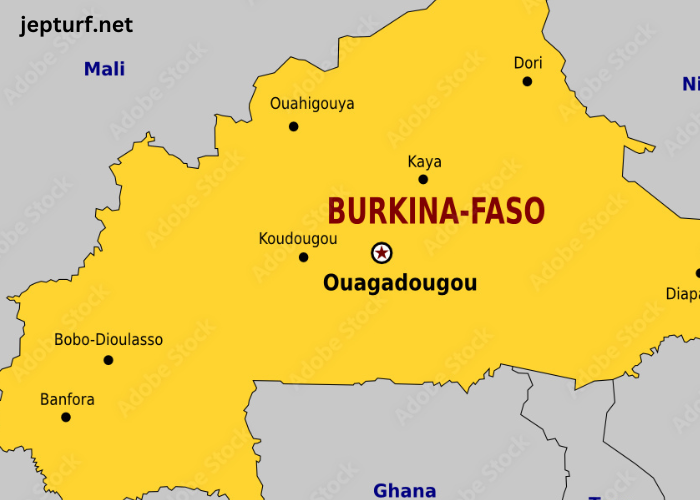The term “Carte Du Burkina Faso” translates to “Map of Burkina Faso.” While a map of Burkina Faso itself may not directly relate to turf betting, understanding the geographical and logistical aspects of the region can offer insights into various aspects of the betting industry. In this article, we will explore how geographical information and regional factors can influence turf betting, and how a comprehensive understanding of these elements can enhance your betting strategies.
Geographical Influence on Turf Betting
Understanding the Terrain and Climate
The Importance of Terrain and Climate
Burkina Faso, located in West Africa, has a diverse range of terrains and climates, from arid regions to savannahs. The climate and terrain can influence the types of races held and the conditions under which horses compete.
Example: Impact on Turf Betting
In regions with arid climates, like those in Burkina Faso, the condition of the racing tracks may vary significantly. For instance, if a race is held on a track that is particularly hard due to dry weather, horses that perform well on such surfaces might be more likely to succeed. Understanding these conditions can help bettors make more informed predictions.
The Role of Local Racing Venues
Identifying Key Racing Locations
Burkina Faso has several racing venues where local turf races take place. Knowing the specific locations of these venues and their characteristics can provide valuable insights for bettors. Each venue may have unique track conditions, such as surface type and layout, which can affect race outcomes.
Example: Racing Venues in Burkina Faso
Research the primary racing venues in Burkina Faso, such as the ones in Ouagadougou and Bobo-Dioulasso. Understand their track conditions, history, and any notable trends that may impact race results. This knowledge will help you adjust your betting strategy based on venue-specific factors.
Impact of Local Factors on Betting Strategies
Regional Racing Trends
Analyzing Local Racing Trends
Regional racing trends can significantly influence betting outcomes. Factors such as local horse breeds, training practices, and jockey performance can vary by region, affecting race results.
Example: Local Horse Breeds
In Burkina Faso, specific breeds of horses may be more prevalent and adapted to local racing conditions. Understanding which breeds perform better in local races can help in making more accurate predictions. Additionally, analyzing the performance trends of local jockeys can provide insights into their success rates and betting potential.
Economic and Social Factors
Economic Influence on Racing and Betting
Economic conditions can impact the racing industry and betting markets. In regions with varying economic levels, the quality of racing facilities, prize money, and betting opportunities can differ.
Example: Impact of Economic Conditions
If economic conditions are challenging, racing venues might have limited resources, affecting the quality of races. Conversely, well-funded venues might offer better-organized events with higher prize money. Understanding these economic factors can help you assess the quality of races and adjust your betting strategy accordingly.
How to Use Carte Du Burkina Faso for Betting Insights
Mapping Out Key Locations
Identifying Key Betting Locations
Using a map of Burkina Faso, identify key locations related to the racing and betting industry. This includes major racing venues, betting shops, and training centers. Mapping these locations can provide a strategic overview of where to focus your betting activities.
Example: Betting Location Mapping
Create a visual map highlighting major racing venues and betting shops in Burkina Faso. Use this map to plan your betting strategy and identify which locations might offer the best opportunities for placing informed bets.
Leveraging Local Knowledge
Engaging with Local Experts
Local knowledge can provide valuable insights into the racing scene in Burkina Faso. Engage with local experts, such as trainers, jockeys, and racing enthusiasts, to gain a deeper understanding of regional factors that influence race outcomes.
Example: Consulting Local Experts
Connect with local racing enthusiasts or experts to get insider information about specific races, horses, and jockeys. This can help you make more informed betting decisions based on on-the-ground insights and trends.
Integrating Geographic Information into Betting Strategies
Using Maps for Better Planning
Strategic Planning with Geographic Data
Incorporate geographic data into your betting strategy by using maps to analyze and plan your bets. Consider factors such as travel distance to racing venues, local race schedules, and environmental conditions.
Example: Race Scheduling and Venue Proximity
Plan your betting activities around the schedules of races held in different venues. For instance, if you know a major race is scheduled at a venue with favorable conditions for certain horses, you can adjust your bets accordingly.
Adapting to Local Conditions
Tailoring Bets to Local Conditions
Adjust your betting strategy based on the local conditions and trends identified through geographic analysis. For example, if you discover that certain types of tracks or weather conditions favor specific horses or jockeys, use this information to refine your betting predictions.
Example: Weather and Track Condition Adaptation
If local weather conditions are expected to be particularly dry or wet, consider how these conditions will affect the track and the horses. Adjust your bets to account for these factors, such as favoring horses that perform well under similar conditions.
Common Mistakes to Avoid
Overlooking Local Factors
Importance of Considering Regional Factors
One common mistake is overlooking local factors that can influence race outcomes. Always consider how regional conditions and trends might impact your bets.
Example: Ignoring Track Conditions
Failing to account for specific track conditions or weather forecasts can lead to poor betting decisions. Ensure you integrate all relevant local factors into your betting strategy.
Relying Solely on Geographic Data
Balancing Geographic Data with Other Factors
While geographic data is valuable, it should be balanced with other factors such as horse form, jockey performance, and race history. Relying solely on geographic information can limit your betting effectiveness.
Example: Combining Data Sources
Combine geographic data with performance statistics, expert opinions, and race analyses to create a well-rounded betting strategy.
Conclusion
The Carte Du Burkina Faso, or map of Burkina Faso, provides essential insights into the geographical and regional factors influencing turf betting. By understanding the terrain, local racing venues, and economic conditions, you can make more informed and strategic betting decisions.
Use maps to identify key locations, integrate local knowledge, and adapt your betting strategy based on geographic and environmental factors. Avoid common mistakes by considering a range of factors and balancing geographic data with other relevant information.
With careful planning and strategic use of geographic insights, you can enhance your betting success and achieve better outcomes in the dynamic world of turf betting.







